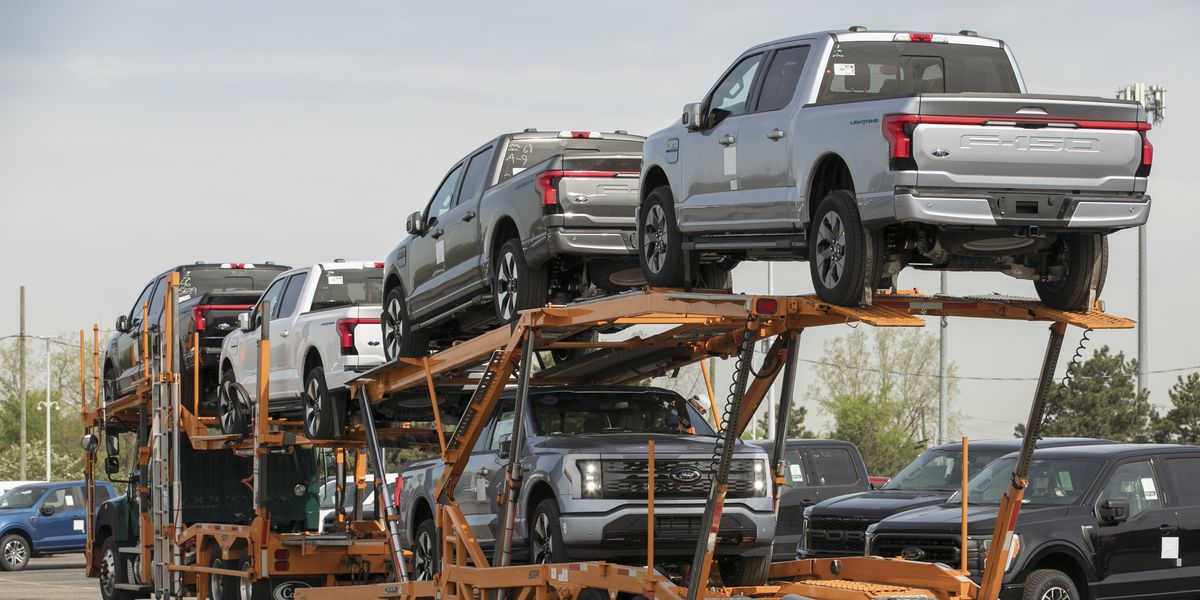Ford, GM Make Stronger Push to Stop Flipping, Price Gouging of Popular Models

As new-car prices rise and demand continues to outstrip supply, some dealers have been known to raise the price of their offerings, and some are doing it by tens of thousands of dollars. Some dealers are also placing orders with false names to increase their supply.Ford has been trying all year to get its dealers to stop overcharging customers by issuing stronger and stronger warnings. Last week, Ford had to update its definition of a “broker” and warned all of them that flipping a new vehicle for a large profit could result in not getting more of that model in the future.GM has had to issue similar warnings to its dealer network, and said this week that some warranties for popular models could no longer be transferred to a new buyer if the car was resold within the first year.
Too many people are taking advantage of the new-car shortage by selling their own just-purchased, highly in-demand vehicles. In many cases, dealers are in on the actions, and affected automakers are not pleased.
Social media has been full of people posting new-car window stickers that show dealers are adding $20,000, $30,000, or even $50,000 to the asking price of a new model, under the guise of a “market adjustment.”
Ford’s taken the most heat for these markups, and has also tried multiple times to get its dealers to knock it off. In January, according to Carbuzz, Ford admitted that a “limited number” of dealerships were requiring customers to pay more than the agreed-upon price for the 2022 F-150 Lightning electric truck, even after the order had been placed. The price gouging was “negatively impacting customer satisfaction and damaging to the Ford Motor Company brand and Dealer Body reputation,” Ford said in a letter to dealers. That letter also warned that any dealers caught increasing prices might not get all the Lightnings they and their customers had ordered. Other popular Ford models getting marked up were the Bronco, Bronco Sport, F-150 Raptor, and the Mustang Mach-E. As far back as December 2021, Ford’s Mike Levine suggested customers look for a dealer that won’t pull any fast ones about pricing:
This content is imported from Twitter. You may be able to find the same content in another format, or you may be able to find more information, at their web site.
In February, Ford CEO Jim Farley said during an earnings call that around 10 percent of its dealers were responsible for these extra charges. Farley said the automaker knew which dealers were causing the problems and repeated the threat about future allocations.
Ford said in May that it would implement a stronger name-match policy, requiring a higher percentage of sales to be delivered to the person for whom the dealer originally told Ford had ordered the vehicle. This change was meant to prevent dealers from using a fake name to order a vehicle, then flip it by selling it for more money to another, real customer.
Despite all of these new rules, Ford had to send an even stronger letter to dealers last week. The automaker has now changed the definition of who is considered a broker, and warns that any broker (now, basically, anyone who might be involved with ordering and flipping a popular model) will be punished. A first offense could result in not getting vehicles in a future order at a 1:1 ratio. So, overcharge for a Lightning today and your next Lightning order will be one vehicle short. A second strike means a dealer might not get any more of that model to sell for the current or next model year, Ford said.
GM Limiting Warranty Transfers
Ford isn’t the only automaker dealing with these problems. GM North America president Steve Carlisle sent a letter to dealers in January that warned the “small minority of bad actors” who were price gouging that GM might not send them the vehicles they were allocated in the future. Last week, the automaker escalated its efforts to stop dealers and individuals from reselling their sought-after models. Corvette Blogger reported on a letter to dealers that describes the new tactic is to limit the transfer of some warranties for “certain high-demand models (as identified by GM) if the vehicle is resold within the first 12 months of ownership,” making flipping far less appealing. The list of affected models includes the Corvette Z06, GMC Hummer EV, and Cadillac Escalade V.
This content is imported from {embed-name}. You may be able to find the same content in another format, or you may be able to find more information, at their web site.
This content is created and maintained by a third party, and imported onto this page to help users provide their email addresses. You may be able to find more information about this and similar content at piano.io



